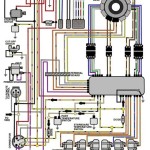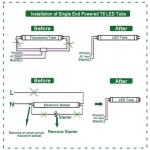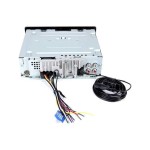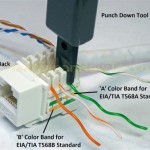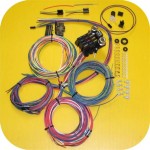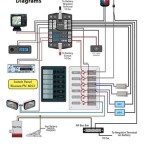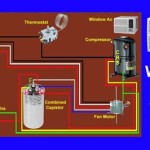Wiring a hot water heater involves connecting the electrical components of the heater to a power source. For instance, in a residential setting, an electrician might wire a 240-volt water heater to a dedicated circuit in the electrical panel.
Proper wiring is crucial for the safe and efficient operation of the hot water heater. It allows the heater to draw the necessary power to heat the water and maintain the desired temperature. Additionally, the historical development of electrical wiring standards has played a significant role in improving the safety and reliability of hot water heater wiring.
In this article, we will explore the different types of wiring configurations for hot water heaters, the materials and tools required, and the step-by-step process of wiring a hot water heater safely and effectively.
Wiring a hot water heater is a critical aspect of its installation and operation, ensuring its safety, efficiency, and reliability. Various key aspects need to be considered and understood to ensure proper wiring.
- Electrical safety
- Circuit sizing
- Wire gauge
- Grounding
- Electrical codes
- Water heater type
- Power source
- Tools and materials
- Step-by-step wiring instructions
These aspects are interconnected and essential for a comprehensive understanding of hot water heater wiring. Electrical safety is paramount, and proper circuit sizing and wire gauge selection are crucial to prevent electrical hazards. Grounding ensures protection against electrical shocks, while adherence to electrical codes guarantees compliance with safety standards. The type of water heater, power source, and available tools and materials influence the specific wiring requirements. Finally, following clear step-by-step wiring instructions is vital to ensure a safe and functional installation.
Electrical safety
Electrical safety is of paramount importance when wiring a hot water heater. It involves adhering to electrical codes and standards, using proper materials and techniques, and taking necessary precautions to prevent electrical hazards such as shocks, fires, and explosions.
-
Grounding
Grounding provides a path for electrical current to flow safely to the ground in the event of a fault or short circuit. In a hot water heater, the grounding wire is typically connected to the metal frame of the heater and to the grounding terminal in the electrical panel.
-
Circuit protection
Circuit protection devices such as fuses or circuit breakers are installed in the electrical panel to protect the circuit from overcurrent conditions. These devices trip or blow when the current exceeds a safe level, preventing damage to the wiring and components.
-
Proper wiring techniques
Proper wiring techniques involve using the correct wire size and type for the specific application, making secure electrical connections, and protecting the wires from damage. This ensures that the wiring can safely carry the electrical current required by the hot water heater.
-
Electrical codes
Electrical codes provide specific guidelines and requirements for the installation and wiring of electrical equipment, including hot water heaters. Adhering to these codes helps ensure the safety and reliability of the electrical system.
Overall, electrical safety when wiring a hot water heater involves implementing proper grounding, circuit protection, wiring techniques, and adherence to electrical codes. By following these guidelines, electrical hazards can be minimized, ensuring the safe and efficient operation of the hot water heater.
Circuit sizing
Circuit sizing, in the context of wiring a hot water heater, refers to determining the appropriate size of the electrical circuit that will supply power to the heater. This involves calculating the electrical load of the heater and selecting a circuit with a current-carrying capacity that is equal to or greater than the load.
Circuit sizing is a critical component of wiring a hot water heater because an undersized circuit may not be able to safely handle the electrical current required by the heater. This can lead to overheating of the circuit, tripping of circuit breakers or fuses, and potential fire hazards. Conversely, an oversized circuit may be more expensive and less efficient than necessary.
To determine the appropriate circuit size, the electrical load of the hot water heater must be calculated. This involves considering the wattage of the heater and the voltage of the circuit. The wattage is typically indicated on the heater’s, while the voltage is usually 120 volts or 240 volts. Once the electrical load is known, the circuit size can be determined using the following formula:
Circuit amperage = Wattage / Voltage
For example, if a hot water heater has a wattage of 4500 watts and will be connected to a 240-volt circuit, the required circuit amperage would be 4500 watts / 240 volts = 18.75 amps. In this case, a 20-amp circuit would be appropriate.
Proper circuit sizing is essential for the safe and efficient operation of a hot water heater. By ensuring that the circuit can safely handle the electrical load of the heater, potential hazards such as overheating and electrical fires can be minimized.
Wire Gauge
When wiring a hot water heater, selecting the correct wire gauge is crucial for ensuring the safe and efficient operation of the system. Wire gauge refers to the thickness of the electrical wire, which determines its current-carrying capacity. Using an undersized wire can lead to overheating, voltage drop, and potential fire hazards, while an oversized wire may be more expensive and less efficient.
-
Conductor material
The conductor material, typically copper or aluminum, influences the wire’s resistance and current-carrying capacity. Copper is more conductive and has a lower resistance than aluminum, allowing for a smaller gauge wire to carry the same amount of current.
-
Wire insulation
The type of insulation surrounding the conductor determines the wire’s suitability for different environments and applications. Common insulation materials for hot water heater wiring include THHN (high-heat-resistant nylon) and THWN (moisture- and heat-resistant nylon).
-
Voltage rating
The voltage rating of the wire indicates its maximum voltage capacity. Hot water heaters typically operate on 120 volts or 240 volts, and the wire gauge must be rated for the appropriate voltage.
-
Ampacity
Ampacity refers to the maximum amount of current that a wire can safely carry without overheating. The ampacity of a wire is determined by its gauge, material, and insulation. For hot water heaters, the wire gauge must be sufficient to handle the electrical load of the heater.
Understanding the various factors that influence wire gauge is essential for selecting the appropriate wire for wiring a hot water heater. By considering the conductor material, insulation type, voltage rating, and ampacity, electricians can ensure that the wiring is safe, efficient, and compliant with electrical codes.
Grounding
In the context of wiring a hot water heater, grounding plays a crucial role in ensuring the safe and proper operation of the system. It involves creating a low-resistance path between the electrical components of the heater and the earth, providing a safe channel for any stray electrical currents to dissipate.
-
Grounding Electrode
A grounding electrode is a metal rod or pipe that is driven into the earth and connected to the grounding system of the house. It provides a direct connection to the earth, allowing electrical currents to flow safely into the ground.
-
Grounding Wire
A grounding wire is a green or bare copper wire that connects the electrical components of the hot water heater to the grounding electrode. It carries any stray electrical currents to the ground, preventing them from flowing through the water pipes or other unintended paths.
-
Grounding Busbar
In a panelboard or electrical panel, a grounding busbar is a metal strip that provides a common connection point for all grounding wires. It ensures that all grounded components are properly bonded together and connected to the grounding system.
-
Equipment Grounding Conductor
An equipment grounding conductor (EGC) is a wire that connects the metal frame or enclosure of the hot water heater to the grounding system. It provides a low-resistance path for fault currents to flow to the ground, protecting users from electrical shock.
Proper grounding is essential for the safe operation of a hot water heater. By providing a safe path for stray electrical currents to flow, grounding helps prevent electrical shocks, fires, and damage to the equipment. It is a critical component of wiring a hot water heater and should always be performed by a qualified electrician.
Electrical codes
Electrical codes are a crucial aspect of wiring a hot water heater, providing a set of regulations and guidelines to ensure the safe and proper installation and operation of the system. These codes cover various aspects of electrical work, including wiring, grounding, and circuit protection, and serve as a benchmark for electrical safety and reliability.
-
Wire sizing
Electrical codes specify the minimum wire size that can be used for a given circuit, based on the amperage and voltage requirements of the hot water heater. Using undersized wires can lead to overheating and potential fire hazards.
-
Circuit protection
Codes require the use of appropriate circuit protection devices, such as fuses or circuit breakers, to protect the circuit from overcurrent conditions. These devices trip or blow when the current exceeds a safe level, preventing damage to the wiring and components.
-
Grounding
Electrical codes mandate proper grounding of the hot water heater to provide a safe path for stray electrical currents to flow to the earth. This helps prevent electrical shocks and ensures the safe operation of the system.
-
Receptacle and switch requirements
Codes specify the type and location of receptacles and switches that must be installed in the vicinity of the hot water heater. These requirements ensure convenient and safe operation of the heater.
Adhering to electrical codes is paramount for the safe and reliable operation of a hot water heater. These codes provide a framework for proper wiring, grounding, and circuit protection, minimizing the risk of electrical hazards and ensuring the safety of users and property.
Water heater type
When wiring a hot water heater, it is crucial to consider the type of heater being installed, as different types may have specific wiring requirements and implications. Water heater types vary based on their fuel source, storage capacity, and design, each with its own considerations for electrical wiring.
-
Fuel source
Water heaters can be powered by various fuels, including electricity, gas, and propane. The choice of fuel source influences the wiring requirements, as different fuel types require specific electrical connections and controls.
-
Storage capacity
Water heater storage capacity refers to the amount of hot water the heater can hold. Larger storage capacities may require higher electrical power to heat and maintain the water temperature, which in turn affects the wiring size and circuit requirements.
-
Design
Water heaters come in different designs, such as tank-type and tankless. Tank-type water heaters store heated water in a tank, while tankless water heaters heat water on demand as it passes through the unit. The design of the water heater impacts the wiring configuration and the electrical components required.
-
Efficiency
Water heater efficiency measures how effectively the heater converts energy into heat. More efficient water heaters require less electrical power to maintain the desired water temperature, which can have implications for the wiring and circuit sizing.
Understanding the type of water heater being installed is essential for proper wiring. The fuel source, storage capacity, design, and efficiency of the heater influence the electrical requirements, wiring configuration, and safety considerations. Electricians must carefully consider these factors to ensure the safe and efficient operation of the hot water heater.
Power source
In the context of wiring a hot water heater, the power source refers to the means by which the heater will receive electrical energy to operate. Understanding the different power source options and their implications is crucial for proper wiring and the safe and efficient operation of the water heater.
-
Electrical power
Electrical power is a common power source for hot water heaters, utilizing electricity as the energy source. Wiring for an electrical hot water heater involves connecting the heater to a dedicated electrical circuit with the appropriate voltage and amperage rating. Proper wire sizing, circuit protection, and grounding are essential for safe electrical operation.
-
Gas power
Gas-powered hot water heaters utilize natural gas or propane as the energy source. Wiring for a gas hot water heater involves connecting the heater to a dedicated gas line and installing the appropriate gas controls. Gas piping, ventilation, and safety devices are important considerations for proper gas operation.
-
Solar power
Solar-powered hot water heaters utilize solar energy to heat water. Wiring for a solar hot water heater involves connecting the heater to solar panels and installing the necessary electrical components. Understanding solar panel arrays, inverters, and system efficiency is crucial for effective solar power utilization.
-
Heat pump
Heat pump water heaters use a refrigerant cycle to extract heat from the air or ground and transfer it to the water. Wiring for a heat pump water heater involves connecting the heater to a dedicated electrical circuit and installing the necessary refrigerant lines. Understanding heat pump technology, defrost mechanisms, and system efficiency is important for proper heat pump operation.
Selecting the appropriate power source for a hot water heater depends on factors such as fuel availability, energy efficiency, operating costs, and environmental considerations. Electricians must carefully evaluate these factors and adhere to relevant codes and standards to ensure the safe and proper wiring of hot water heaters, regardless of the power source utilized.
Tools and materials
When wiring a hot water heater, having the right tools and materials is essential for ensuring a safe and efficient installation. These components play a crucial role in connecting the heater to the power source, controlling its operation, and providing necessary protection.
-
Electrical wires
Electrical wires are used to carry electricity from the power source to the hot water heater. They come in different sizes and types, and the appropriate selection depends on the amperage and voltage requirements of the heater. Using wires that are too small can lead to overheating and potential fire hazards.
-
Circuit breaker or fuse
A circuit breaker or fuse is a safety device that protects the electrical circuit from overcurrent conditions. When the current exceeds a safe level, the circuit breaker trips or the fuse blows, interrupting the power supply to the heater. This helps prevent damage to the heater and potential electrical fires.
-
Grounding wire
A grounding wire provides a low-resistance path for electrical current to flow to the ground. This helps prevent electrical shocks and ensures the safe operation of the heater. The grounding wire is typically connected to the metal frame of the heater and to a grounding electrode.
-
Tools
Various tools are required for wiring a hot water heater, including pliers, screwdrivers, wire strippers, and a voltage tester. These tools help in cutting, stripping, and connecting wires, as well as testing for proper voltage and continuity.
Having the right tools and materials is paramount for the safe and proper wiring of a hot water heater. Using appropriate electrical wires, circuit protection devices, and grounding ensures the safe operation of the heater and minimizes the risk of electrical hazards. Proper tools facilitate efficient and accurate wiring, ensuring a reliable and long-lasting installation.
Step-by-step wiring instructions
Step-by-step wiring instructions provide a detailed guide on how to safely and effectively wire a hot water heater. These instructions cover various aspects, including preparation, safety measures, wire selection, and connection procedures.
-
Safety Precautions
Safety is paramount when wiring a hot water heater. Step-by-step instructions emphasize the importance of turning off the power supply, wearing appropriate safety gear, and following electrical codes to minimize the risk of electrical shocks or fires.
-
Tools and Materials
Having the right tools and materials is crucial for efficient and accurate wiring. Step-by-step instructions provide a comprehensive list of necessary tools, such as screwdrivers, pliers, wire strippers, and a voltage tester, along with the appropriate electrical wires, circuit protection devices, and grounding materials.
-
Circuit Wiring
Step-by-step instructions guide the electrician through the process of connecting the hot water heater to the electrical circuit. This includes identifying the correct circuit breaker or fuse, running the electrical wires from the panel to the heater, and making proper connections to the heater’s terminals.
-
Grounding
Proper grounding is essential for the safe operation of a hot water heater. Step-by-step instructions explain how to connect the grounding wire to the heater’s frame and to a grounding electrode, ensuring that stray electrical currents are safely diverted away from the heater and its surroundings.
By following step-by-step wiring instructions, electricians can ensure that hot water heaters are wired correctly and safely, minimizing the risk of electrical hazards and ensuring the efficient and reliable operation of these essential appliances.









Related Posts

